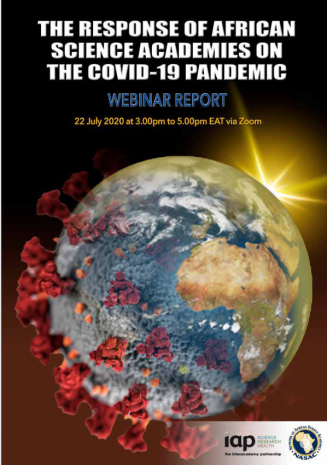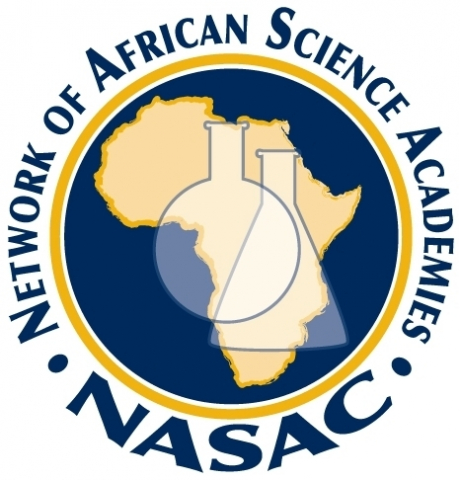The Webinar on the Response of Science Academies to the COVID-19 pandemic was organised by NASAC in collaboration with the InterAcademy Partnership (IAP). Sixty (60) participants were in attendance, mainly from the academies’ membership and secretariat staff. The inclusion and representation of national young academies was also noteworthy. In this report, this discussion on the efforts that academies have undertaken since March 2020, when COVID-19 was declared a pandemic, is highlighted.
The President of NASAC called on science academies to reflect and propose the most appropriate solutions for the African continent by turning the current difficulties into opportunities. Presentations made by academies already demonstrated the opportunities they exploited. The Ugandan National Academy of Science (UNAS) demonstrated innovation by developing a model for the management of COVID-19 while the Academy of Sciences of South Africa (ASSAf) had already established partnerships and initiatives that led to developing of joint papers, research and grant funding for COVID-19.
All participating members of academies were given an opportunity to highlight their efforts in responding to the pandemic during the webinar. Amongst the highlights shared, several academies were providing committee support to their national governments, fundraising to undertake COVID-19-related activities and leveraging partnerships for research, among other initiatives. NASAC’s response to the pandemic involved actions such as: (i) Conducting the COVID-19 survey among its membership, (ii) Drafting and circulating the Statement on COVID-19, and (iii) Hosting the Academies’ COVID-19 response webinar.
For the InterAcademy Partnership (IAP), the response re-emphasised the need for an interdisciplinary approach in the management of COVID-19. That way, the physical, biological and behavioural sciences would collectively provide a meaningful and lasting path towards a post-COVID recovery. IAP had also established a multi-country COVID-19 Advisory Group that could be a source of technical advice for academies at the global level.
At the conclusion of the webinar, it was recommended that a multi-disciplinary and multi-stakeholder approach has to be adopted by academies in combating the pandemic.

